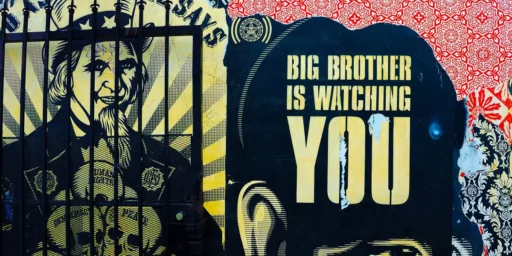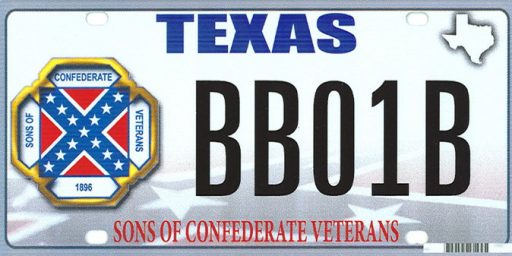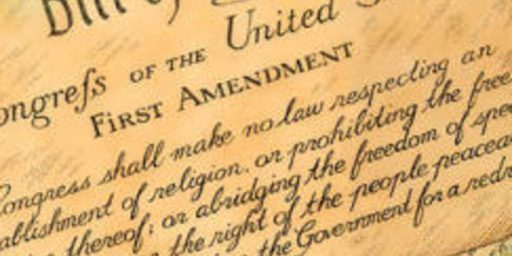Free Speech and Foreign Terrorist Organization Donations
Steve Vladeck argues that the 9th Circuit’s decision in United States v. Afshari, “in which the court found no problem sustaining criminal convictions for contributing to designated Foreign Terrorist Organizations,” is deserving of review by the Supreme Court.
He calls our attention to this passage in the dissenting opinion by Judge Kozinski:
[T]he entire purpose of the terrorist designation process is to determine whether an organization poses a threat to national security. Under the Constitution, the State Department does not have carte blanche to label any organization it chooses a foreign terrorist organization and make a criminal out of anyone who donates money to it. Far too much political activity could be suppressed under such a regime.
Now, I agree that there should be at least some burden on State to demonstrate that FTOs on the list are in fact FTOs. Still, this is the same Supreme Court that ruled that it is not a violation of the 1st Amendment to restrict donations American citizens can give to American political candidates? Surely, if restricting free speech is permissible for the mere purpose of limiting the appearance of conflict of interest in our politics (an idea with which I, by the way, disagree strongly) surely it can be done for the purposes of stopping terrorists? Indeed, there is zero requirement to show that candidate X is a corrupt SOB before limiting the money given to him.
Larry Rosenthal also has some interesting thoughts about the prior restraint aspect of the case, terming Kozinski’s argument “facile.”





James – The court in Afshari makes your point at page 14414:
Vladeck’s main complaint seems to be that the 9th circuit sustained the convictions “notwithstanding the fact that the D.C. Circuit had struck down the designations that formed the basis for the convictions on constitutional grounds.” But the D.C. Circuit didn’t “strike down” the designation. What it did find was that State had failed to follow certain due process requirements when designating MEK as a terrorist organization, and had remanded the matter to State for remedial proceedings without vacating the designation. So as far as the defendants were concerned, MEK was always a designated terrorist organization and they knew that when they provided the support.
Vladeck also quotes from the dissent in the rehearing denial, arguing that “the State Department does not have carte blanche to label any organization it chooses a foreign terrorist organization and make a criminal out of anyone who donates money to it.” And indeed State does not. An FTO designation is made based on specfic statutory criteria, requires advance notice to congressional leadership, can be rejected by congress, is published, is appealable to federal court, and can be set aside if the designation is arbitrary, capricious, or an abuse of discretion.
The organization at issue here took advantage of the federal court review and the designation was upheld, in no small part because MEK’s supporting papers admitted engaging in political assasinations of Iranian officials and mortar attacks on Iranian government installations.
Gollum: Thanks. Good info.
JJ, I’m not up on the campaign restrictions & you are … am I guilty of a federal *crime* if I donate too much, or to the wrong person?
Anderson: No, I don’t think so. There are FEC-imposed civil sanctions on candidates, though.
But the 1st Amendment isn’t restricted to criminal sanction.
Yeah, but that would be a pretty huge disanalogy between the two situations. Saying I can’t donate is one thing. Putting me in jail for donating … I think it’s fair to demand a teensy bit more oversight there.